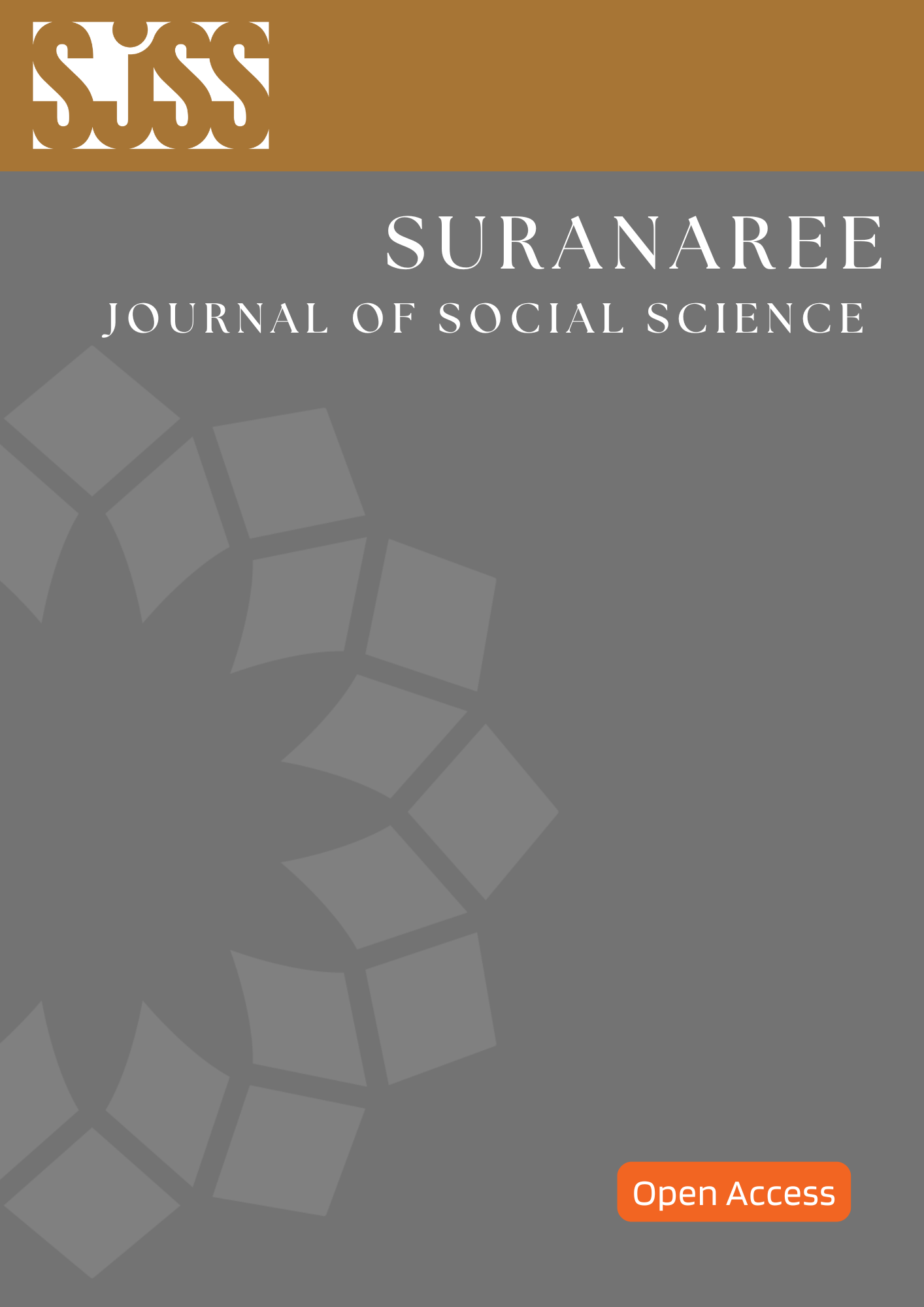The Effect of Digital Accounting on the Quality of Financial Reports
Main Article Content
Abstract
These purposes of this study is (1) to study the qualitative characteristics of financial reports, (2) to analyze the relationship between digital accounting and the quality of financial reports, and (3) to analyze the impact of digital accounting on the quality of financial reports. The sample group used in the research was 275 certified public auditors. The tool used to collect data was a questionnaire. Statistics used to analyze the data included percentage, mean, standard deviation correlation analysis, and simple regression analysis for hypothesis testing.
The results of the research showed that (1) the quality of financial reports consist of basic qualitative characteristics and high level overall quality characteristics, (2) digital accounting is related to the quality of financial reports and take place in the same direction with a significance level of 0.01, and (3) digital accounting affects the quality of financial reports at a significance level of 0.01.
Finally, digital accounting can provide benefits to society by giving a perspective on improved characteristics, can be used to make operations more efficient and more effective, and can provide a new theoretical framework (Basic Research) in accounting.
Article Details

This work is licensed under a Creative Commons Attribution-NonCommercial-NoDerivatives 4.0 International License.
References
Abiodun Sarafadeen, Y. (2018). Impact of Audit Committee Attributes on Financial Reporting Quality of Listed Financial Institutions in Nigeria. Master of Science in accounting, Kwara State University.
Angkasuko, S., Tonwichien, P., Sanguansakyothin, T., & Tarawanit, P. (2012). Policy On Dividend Payment and Cash Flow Uncertainty and Shareholder Structure. (In Thai). Chulalongkorn Business Review. 34(131). 107-144.
Archdech, N. (2012). The Effect of Reliability in Accounting Operations on The Corporate Image of The Car Dealership Business. (In Thai). Master of Accounting Thesis, Maha Sarakham University.
Boonruam, V. (2015). The Relationship Between the Credibility of Financial Reports and The Corporate Image of The Hotel Business in Thailand. (In Thai). Master of Accounting Thesis, Maha Sarakham University.
Bygren, K. (2016). The Digitalization Impact on Accounting Firms Business Models. Master of Science Thesis, KTH Industrial Engineering and Management, Stockholm, Sweden.
Chanatup, S., Aujirapongpan, S., & Ritkaew, S. (2020). The Influence of Corporatwe Governance Mechanism on The Integrated Financial Reporting and Investment Risk of Thai Listed Companies. https://doi.org/10.9770/jesi.2020.7.4(16)
Cherian, J., Safdar Sial, M., KhoaTran, D., Hwang, J., Thuy Khanh, T. H., & Ahmed, M. (2020). The Strength of Ceos’influence on CSR In Chinese Listed Companies. New Insights from An Agency Theory Perspective. Sustainability; Basel. 13(2): 2-13.
Deshmukh, A. (2006). A Framework for Digital Accounting. In Potter, M. (Ed.). Digital Accounting: The Effects of the Internet and ERP on Accounting (pp.1-13). United Kingdom, IRM Press: Idea Group Inc. https://doi.org/10.4018/978-1-59140-738-6
Federation of Accounting Professions Under the Royal Patronage of His Majesty the King. (2019). (Draft) Conceptual Framework for Financial Reporting. (In Thai). [On-line]. Available: www.tfac.or.th
Hair, J. F., Black, W. C., Babin, B. J., & Anderson, R. E. (2010). Multivariate Data Analysis. (7th ed.). Pearson: New York.
Hoffman, C., & Rodriguez, M. M. (2013). Digitizing Financial Reports – Issues and Insights: A Viewpoint. The International Journal of Digital Accounting Research. 13(6): 73–98.
Intuit. (2019). Report-Future of the Accounting Profession. [Online]. Available:
Jensen, M. C., & Meckling, W. H. (1976). Theory of the Firm: Managerial Behavior, Agency Costs and Ownership Structure. Journal of Financial Economics. 3(4): 305-360. https://doi.org/10.1016/0304-405X(76)90026-X
Khongsano, P. (2019). The adjustment of the Thai economic structure into "Thailand 4.0". (In Thai). [On-line]. Available: www.parliament.go.th.
Kisaku, J. M. (2017). Impact of Financial Reporting Frameworks on the Quality of Not-for-Profit Financial Reports. Doctoral Dissertation, Walden University.
Kline, R. B. (2010). Principles And Practice of Structural Equation Modeling (3rd ed.). New York, NY: Guilford Press.
Knewtson, H. S. (2011). Executive Roles and Insider Trading. Doctoral dissertation, Washington State University.
Li, L. (2011). Study On Index System of Accounting Information Quality and Its Application for Chinese Listed Companies. Master of Science and Technology, Huazhong (Central China) University.
Long, M. J. (2013). E-Business Reporting: Towards a Global Standard for Financial Reporting Systems Using XBRL. Doctoral dissertation, Nova Southeastern University.
Mäkinen, H. (2010). The Factors Impacting the Diffusion of Innovation in Digitalizing Accounting. M.S. thesis, Aalto University, Finland.
Meampon, S. (2010). Accounting Theory. (In Thai). Volume 2. Bangkok: Infomining.
Muhammad, K., Mastuki, N. A., Darus, F., & Ghani, E. K. (2019). Accounting Information System Change in An Agriculture Company: Examination Using Burns and Scapens Framework. Journal of International Studies. 12(1): 105-118. https://doi.org/10.14254/2071-8330.2019/12-1/7
Srisatitnarakul, B. (2010). Research Methodology in Nursing. (In Thai). Bangkok: You and I Intermedia.
Trzeciakiewicz, A. (2014). Essays On Information Asymmetry, Agency Problem, And Corporate Actions. Doctor of philosophy, University of Hull.
Yajaimun, Y. (2008). Relationship Between Accountant Professionalism and Financial Reporting Quality of Small and Medium Enterprises in Mueang Chiang Rai District. Master of Accounting Program, Chiang Mai University.
Yamane, T. (1973). Statistics: An Introductory Analysis. (2nd ed.). New York: Harper & Row.
Zheng, S. X., & Stangeland, D. A. (2007). IPO Underpricing, Fim Quality, And Analyst Forecasts. Financial Management. 36(2): 45-64. https://doi.org/10.1111/j.1755-053X.2007.tb00086.x


